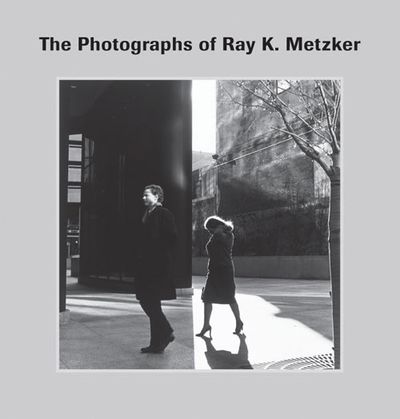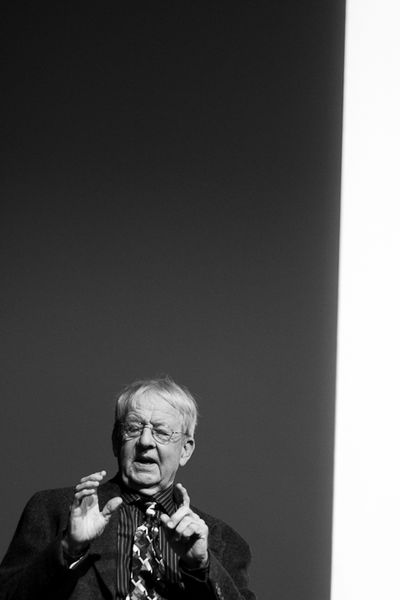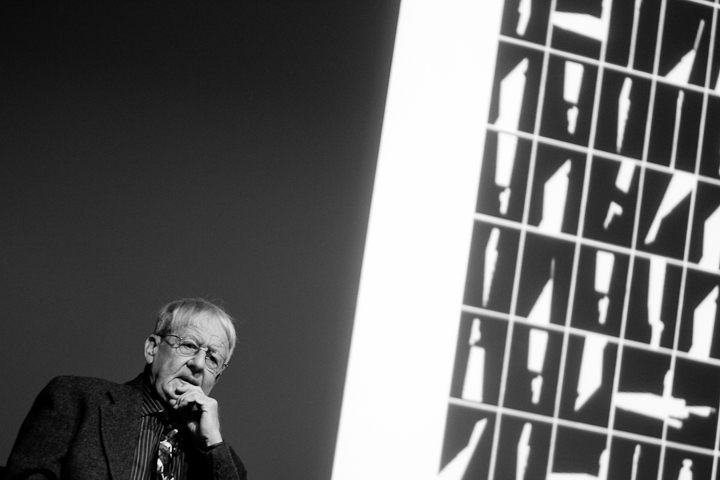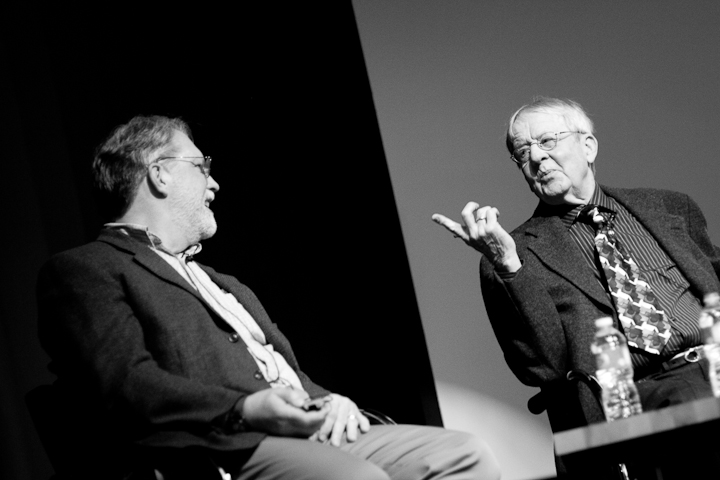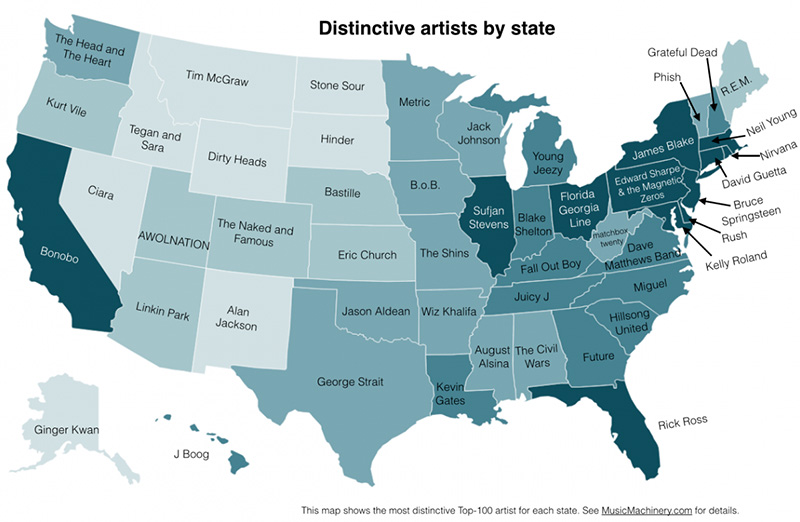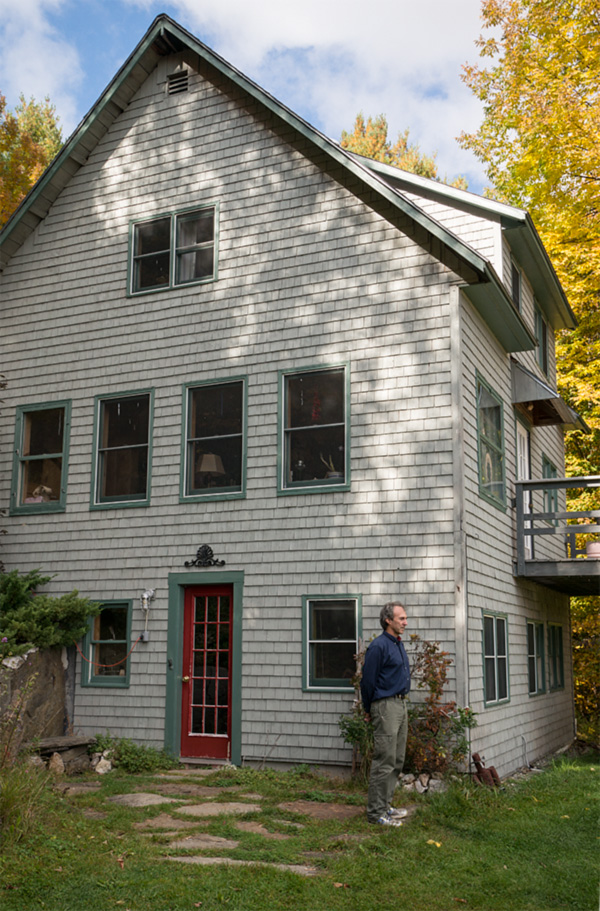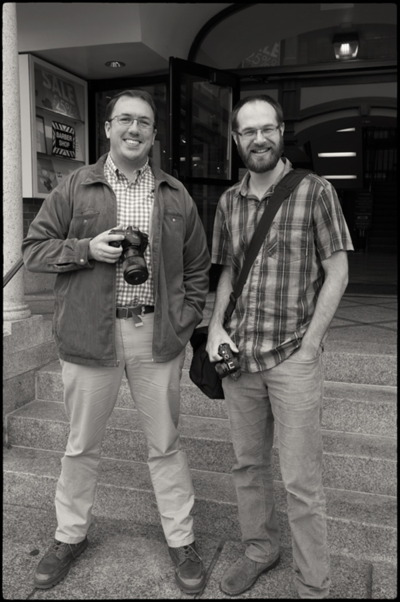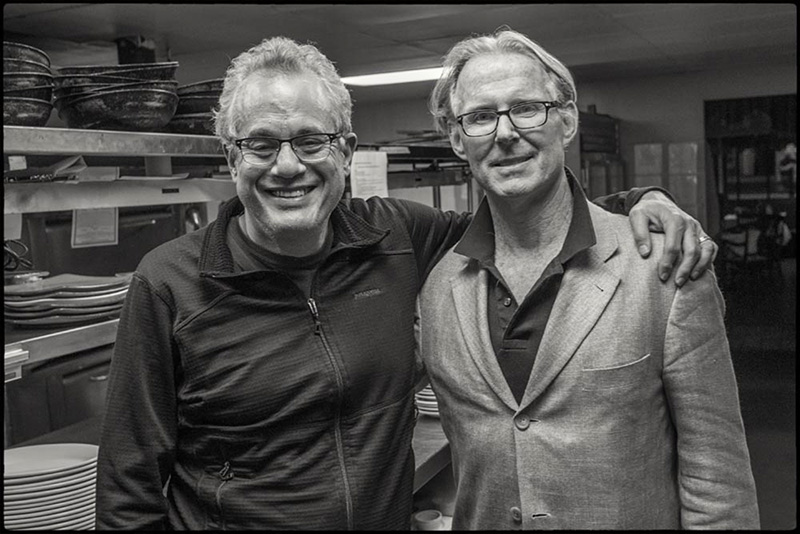[Originally written in 2007. Re the last paragraph, at the time I did not envision that this site would provide me with a living. —Mike]
"Along with teaching creative thinking, art schools should encourage creative ways of making a living."
—Alec Soth
A few years back, I passed on an opportunity to teach a photography class or two at an art school. I visited and gave a lecture, but the students seemed deadened: no one asked any questions, even when I asked for questions...even when I said things that demanded questions and then asked for questions, and then waited. Nothing. Just stares, and then everybody got up, morosely, and left the room. As if committing to a question were a mark of weakness. I met one student there who was focused on making a living, and he was disenchanted and thinking of leaving the school because most of his teachers were contemptuous of his materialistic viewpoint. What's the point in making a living? they seemed to be saying. (A year later I encountered him again selling cameras at the local camera store, and then I lost track. I'm hopeful he's made the big time now. "Hopeful" being the operative word. More likely, he's moved on to a field more accepting of ambitiousness.)
Don't get me wrong—I loved art school. Loved it. I went off to the Corcoran School of Art (later the Corcoran College of Art + Design, now in transition again as the old Corcoran Gallery is being completely reorganized) for one year, reasoning that I would learn 100% more in one year than I would in zero years. I liked my year so much I ended up staying for three and graduating. It wasn't something I had planned to do, but it was a relief, after spending several years in places where there weren't very many people like me, to find out that there were places where there were. Most of my memories are good ones. I felt privileged to be an art student. I liked the identity. It fit my temperament. I still keep in touch with several of my friends from there, and a couple of my teachers. (Another teacher I kept up with for a few years died of MS, quite young, a pity.)
I don't think there are many better ways to add richness and a sense of voyage to one's life than by being an artist. Even a part-time artist.
That's an important sentence and I'm about to move on, so I'll repeat it: I don't think there are many better ways to add richness and a sense of voyage to one's life than by being an artist.
What I have trouble with is one particular perverse idea that art schools seem to promulgate. Well, not exactly promulgate—it's an assumption that they leach from other professional schools "as if by osmosis." (Whenever you use a cliché that bad you have to put it in quotation marks.) The idea is that there are professions out there in the world with remunerative positions waiting to be filled—i.e., jobs that need doing—and that that's why the school exists: for training purposes. Therefore when your parents pay good money to see you trained for those positions, they increase your chances of getting one.
This is true in many professions—for example, accounting, or nursing. My friend Ed just graduated from nursing school and was offered a job as a nurse almost as soon as he was free to take one. If a law school or medical school graduate who has passed all the necessary exams and gotten all the necessary licenses doesn't get a job offer, she is still technically free to go practice what she's learned on her own, and she can make a living—often a good one—doing so. Art schools don't necessarily make similar claims; they just keep quiet and shuffle along with the crowd, acting like they naturally belong right there alongside all the other professional schools, somewhat like I used to do in museums when I'd quietly attach myself to a lecture group and wander along with the class as if I belonged in it. (Once, a professor from George Washington University spied me amongst his herd when I got too near the front. He said, "Excuse me, but who are you? This is not a public lecture. Please leave." Busted.)
This is fraudulent on the part of the art schools, of course. Think of it as one of the world's biggest white lies. There is no art profession and there are no artist positions waiting to be filled. There isn't any need for a certifying process for artists, either. It's not a guild that can protect itself from interlopers or overcrowding by keeping membership exclusive. And although the income ceiling in art is absurdly high, there are fewer jobs that require an art school degree than there are jobs for Major League Baseball players—basically, "teaching in other art schools" just about covers all the jobs there are. And even those are surprisingly tough to get—most art school graduates lucky enough to get teaching jobs hang on to their positions until they're carried off on stretchers leaving long trails of fingernail marks on the ground behind them as they go.
In the middle of my art school career, I heard a telling statistic. After ten years, more than 90% of the graduates of any given law school will still be practicing law or working in some law-related field; if the number dips below 90%, then it was a very bad year for that law school. But, after that same ten years, if more than 10% of the graduating class of any art school are full-time artists or working in some art-related field, then it was a banner year for that art school—the more typical numbers are 5–7%.
To put that more clearly:
Law school: at least 90% of graduates will stay in the field they studied.
Art school: At most, 10% of graduates will stay in the field they studied.
And then you have to factor in the sobering likelihood that some of those 5–7% would have succeeded as artists anyway, even if they didn't have a B.F.A. or an M.F.A., because they happen to be particularly good, or particularly driven. An art school education is less helpful when it comes to getting a job than the proverbial liberal arts degree in philosophy.
When I was a photo magazine editor, I'd occasionally get phone calls from a parent asking my opinion of four-year programs in photography. Was it a smart move? Is it a good investment?
A good investment?
Talk about torn. I could just picture, waiting out past the edge of view, some bright-eyed, creative young person who really really wants to go to art school to study photography, and who, after a long campaign of arguing and pleading, had almost gotten his or her parents on board with the idea. And there I was, some stranger, about to casually erect another roadblock for the poor kid.
I felt like a traitor to my alma mater, too—even a traitor to my younger self, who liked art school so much and had such a great time there. But what the parent was asking, of course, was will this help my child get a job in your profession? And the answer, of course, is no—the answer is that four years of art school is a great experience and will help your child immeasurably to mature as a person and prepare her to practice art for the rest of her life—assuming she maintains her motivation...and oh, by the way, she will be no closer to knowing how to make a living four years from now than she is right this second. Sorry.
"The poem is important, as the want of it proves."
—Wendell Berry
That's not to say that the nation, and society, has no need for artists. Far from it—in this country, which is fundamentally hostile to art, we need more artists, not fewer. For individuals who have an artistic temperament, not practicing art in some way or other can be unhealthy. If you really love theater, you should be involved in theater, somehow. Quilting, furniture-making, building model railroads—most of what we know as "hobbies" are essentially creative, and without our chosen creative outlets we would be less happy, and our lives would have less meaning. If you have musical aptitude or talent, it's almost imperative that you be involved in music in some way—if not as an actual musician, then something related. I discovered thirty years ago that I have little talent for music but a fairly high aptitude for it—just under the level of aptitude that real musicians have, but much higher than that of the general population. It was suggested to me at that time, seriously, that I should become a music listener, that is, part of the audience of musicians. I've devotedly followed that path ever since, and it has been one of the best and clearest life choices I've made—perfect for me and my abilities. That path has enriched my life immeasurably, and (apart from the fact that I spend too much money on iTunes) I could not be more contented with the choice.
Creative work, whatever it might be, is an appetite, a need. Trivializing it somewhat, I sometimes call it an itch. (If I don't write something every day, it drives me nuts.) People who have talent and aptitude for art are unlikely to be happy if they're not incorporating art and artistic creativity into their lives somehow. The problem that remains is that how this relates to making a living is fraught with complexity and ambiguity. For most, art is a poor career. Those who succeed at it sometimes seem just lucky, and who succeeds and who doesn't is sometimes maddeningly arbitrary. I know one superb artist who is currently working as a house painter, and another who works in a tree nursery, where he is tortured daily by an oldies station piped mindlessly over the PA system. (Anything but that.)
You would think that the opposite strategy might work well—that people who aspire to be artists should train themselves for a conventional career, make their piles young, and go on to practice art once they have the leisure for it. Like Dwight Eisenhower, who painted in his dotage. For a while I noticed that many of my friends from my Ivy League years who had been successful in business or medicine or computer programming had both more free time and more money than I had, and were therefore more free to practice their art (and could afford fancier cameras). Briefly, I was jealous of some of them. But no longer. For some reason—I can really only speculate as to why—success in art is even more elusive for such people. I know fewer successful artists who took this path than who went through art school and struggled to reconcile the continual practice of their art with the cracking of the monthly nut; I have no way to retrieve figures, of course, but it seems safe to say that the success rate is even lower than that 5–7% number.
Of course, many of them do have a great time. I know some "re-entry photographers" who are having a blast with photography in their retirements from unrelated careers. Nothing at all wrong with that.
But why doesn't it seem to work? As with most amateurishness, it seems to boil down to failures of either confidence or taste. People who take that track seem locked in dilattantism, as if they cannot take themselves seriously enough, cannot muster enough ambition. They're content to dabble. Or, they just haven't engaged enough with art to really get how it works or figure out how to do it. In photography, especially, what seems to trip up most amateurs is a lack of self confidence. The single most destructive impulse I've consistently observed in amateur photographers, after working with them more or less continuously over 22 years, is their insecurity about not being liked or understood, and their concomitant anxiousness to please others. Nothing is worse for your art than pandering to make more people like you. That may, indeed, be the principal legacy of a good art school education: the crucial insight that it is only by pleasing oneself that the artist can ultimately please others. It's why professionals, whose job is, after all, to create things that are immediately and obviously pleasing to broad numbers of viewers, are so seldom remembered for their artistry—and when they are, it's because at their essence they are artists playing at commerce rather than commercial photographers playing at art.
Seen from the individual artist's perspective, the biggest single problem of a life in art is how to successfully balance creative endeavors with making a living. It's why so very many successful artists come from wealthy families, like Eliot Porter (who celebrated when his income from photography finally outstripped his income from his trust fund) or Henri Cartier-Bresson (whose family, manufacturers of sewing supplies, was one of the wealthiest in France). Many artists who make it in art come from circumstances in which they would be perfectly comfortable had they instead chosen to do nothing at all. They work hard at art in preference to not working at all, rather than in preference to some other kind of work.
"I did say everything I thought / In the mildest words I knew."
—Galway Kinnell
The better art schools accommodate this problem, but usually only as an afterthought: there might be one course, or part of one course, about the nuts-and-bolts of the artistic life, usually centering around legal issues or marketing skills. For art schools to function as training schools, though, it really ought to be a twin core of the curriculum; a student ought to graduate not only knowing something about his artistic ambition, but having a firm grasp of how he's going to survive to see it realized.
It's a tall order, though. The task is inherently difficult.
I can be a very stubborn person about some things, and when I heard that 90% / 10% statistic my instantaneous and undying vow to myself was that I was going to be among the 5–7% that stayed in the field I graduated in, come what may. And, 22 years [now 29 years —MJ] from my graduation, I can say I've done it. I'm still in photography. With one exception, every job I've had—full time, part-time, or freelance—even though many of them have involved writing or editing—has been intimately connected with photography in some way or other, or has been designed to leave room for my creative activities. And one way or another, I've done something creative during all those years.
Of course, I'm not sure how proud of that I should be—because if I examine my life today, and stay objective about it, I realize that I still need a decent job, to help make ends meet.
Mike
Original contents copyright 2014 by Michael C. Johnston and/or the bylined author. All Rights Reserved. Links in this post may be to our affiliates; sales through affiliate links may benefit this site.
TOP's links!
(To see all the comments, click on the "Comments" link below.)
Featured Comments from:
Tom Kwas: "Interesting, though I have a few points....
"1. I started my career in photography as far back as the '60s (and before I even got out of college), and back then, it was infinitely easier to function with practically no income, and easy to get a job (or shoot a photo job) that would cover an apartment and some living; and that would not be so taxing that it could tire you out from pursuing another course of study (or take pictures) in your spare time. The day rate was low, but so were apartment rents and car payments and entertainment.
"2. Forty-four years down the road, and I manage an e-commerce photo studio for a big retailer. Kids leave school with $50–80k of college loans; and the minute they leave, they're under the gun to start paying it back. It's hard not to believe that the American business community was not in league with the educational system in this country to create the largest group of sheep-like slave labor I've ever seen in my life! Believe me, no one is thinking arty thoughts, alternative thoughts, or entertaining ideas of 'stickin' it to the man' when they are making 14 dollars an hour, living in their parents' basement, and are trying to pay everyone back. They're not objecting to any treatment at all; they'll do whatever, as long as the check clears again this week! And, there is no money to do anything but go to work the next week.
"3. College, as I have said above, is overpriced, and doesn't prepare most people for the work market anyway, at least in the arts. Paying colleges $20k a year to read Milton and Fitzgerald might give you a degree of some kind, but you could read it for free at the library. Literally half my staff are grads of a two-year chain tech-oriented art school. For what my company wants, these people come in, know far more of the technology than I do, sit down, and get to work; shovel ready. The dreamy four- and six-year college art/photo grad may be the person we want to live in the world with, but few of them can handle all the technology, or the boredom of the actual job, and they are always my most disgruntled employees. There is a huge disconnect between what four- and six-year art colleges teach and the actual ability to make a living.
"4. It's amazing to me, or it's rank malfeasance, that nobody has ever had a conversation with any of the kids, whether at a two-year tech school, or a four- to six-year institution, about the options associated with getting work in the industry in their area of study. I live in the 33rd largest market area in the U.S., and hundreds of people get out of school with art and photography degrees and go right into the bar/coffee shop employment chain. Why don't their schools tell them 300 people per year in the greater city area with art/photo degrees are not going to be absorbed into the work force?"
Mike replies: The answer to that last question should be obvious. Because then they can't get enough students.
At some level, though, that's not really up to the school. Why should the school have to tell people why to get an education? People educate themselves for all sorts of reasons and the school shouldn't be telling them what those reasons should be.
I got into big trouble once when I sold audio equipment because I overheard a couple arguing about whether they could afford $900 for a pair of speakers. I sold the guy on a pair of $300 speakers instead. The wife was grateful (she thanked me quietly on the way out) but my boss was livid: he explained to me in very colorful (!) terms that it wasn't up to me to determine whether his customers could afford what they wanted to spend. No other business voluntarily evaluates the practicality of the purchase for the consumer except if they're trying to encourage them, so why should schools have to do that?
It's just that, as a magazine editor being asked for advice by parents, I was in more of a bind than that.
I wonder too if you're really being fair by appraising various college programs the way you are. I do take your point, but I've known of totally useless two-year programs and have known some extremely motivated four-year grads who went on to success. A classmate of mine was Tim Gunn, for instance, who has been a TV personality, and one of the people in my class (whose sister I dated) was featured in The New Yorker a few years ago. It's not like all four-year grads are inept and resentful.
Jerry Kircus: "Mike, thank you for an interesting and thought-provoking article. It was well worth the re-print. I developed a passion for photography starting about age 12. By age 15 (57 years ago) I got a job working in the darkroom of a professional portrait photographer and at first I thought I was in heaven. It paid $0.75 an hour and I could use his darkroom when the work was done. There was an aspect of creativity, but mostly it was satisfying customers. It was mostly a sales job and I learned that was not what I wanted to do with my life. My parents were blue collar and I did not have a trust fund. I worked on high school and college yearbooks and one summer at our local daily paper before going to law school. I have had an enjoyable and satisfying career, but I never put my camera down. I now have an insane amount of equipment and piles of pictures and photography satisfies my soul. I am not a dilettante and I am not a professional. I call myself a photographer. If someone calls me an artist I say thank you. Mostly, you can just call me Jerry."
